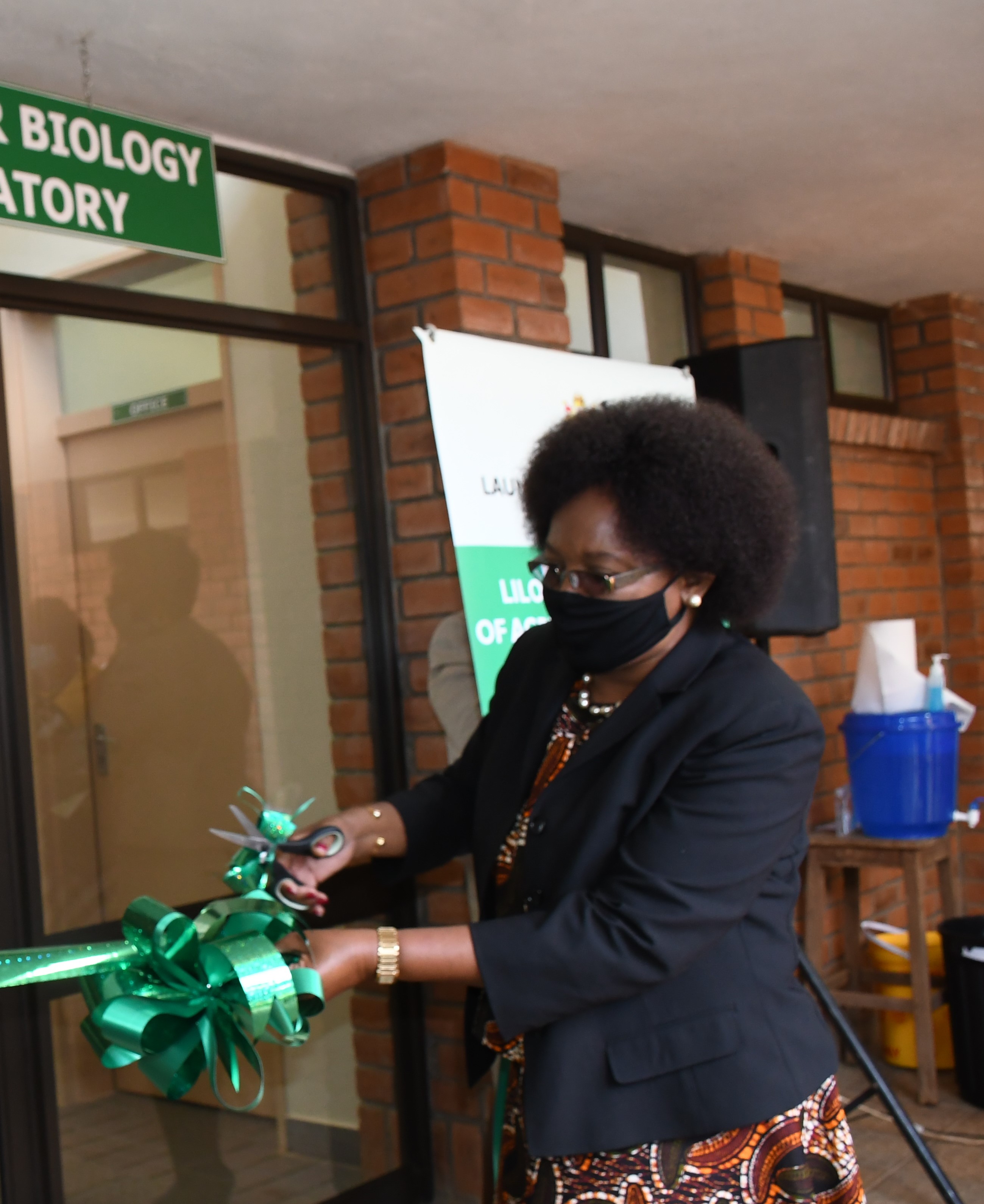HON. NANCY TEMBO LAUNCHES LMO TESTING SERVICES
Posted on 2020-07-24

On Thursday, 23rd of July 2020, the Minister of Forestry and Natural Resources, Hon. Nancy Tembo, launched the Living Modified Organisms (LMO) Testing Services at Chitedze Agricultural Research Station and Lilongwe University of Agriculture and Natural Resources (LUANAR) Biotechnology Laboratories. Speaking at the launch, the Minister appealed to stakeholders requiring Living Modified Organisms (LMO) testing services in the country to use the newly launched testing services for the benefit of the country.
The capacity to conduct LMO testing has been achieved under the "Multi-Country Project to Strengthen Institutional Capacities on LMO Testing in Support of National Decision-Making Project (MCP-ICLT).
The minister expressed the hope that the equipment procured under the LMO Project will be used responsibly to effectively support monitoring LMOs legally or illegally coming into the country to ensure the safety of the environment and human health.
“The Constitution of the Republic of Malawi requires that we conserve biological diversity for the present and future generation. Living Modified Organisms resulting from modern biotechnology, if not well regulated, can cause adverse effects to the biological diversity and pose risks to human health and the environment in general,” she said.
Honourable Tembo also urged management of Chitedze Agricultural Research Station and LUANAR to devise measures of ensuring sustainability of the LMO detection services beyond the project. The MCP-ICLT Project ends in 2021.
Speaking at the function, the Executive Director for Quton Malawi Limited, Mr. John Lungu, said that the launching of the LMO testing services provides an opportunity to the private sector to meet their customers' needs efficiently and effectively.
“Every time we needed to export seed, we had to send samples out of the country to either Zimbabwe or South Africa. This has been expensive and time-consuming” Lungu said.

Malawi is party to the Convention on Biological Diversity and the Cartagena Protocol on Biosafety which were ratified in 1993 and 2009, respectively. Malawi Government has domesticated the Cartagena Protocol on Biosafety by developing the National Biosafety Act (2002), the Biosafety Regulations (2007) and Biotechnology and Biosafety Policy (2008).
The Lead Executing Agency (LEA) for project at regional level is the Regional Agricultural and Environmental Innovations Network-Africa (RAEIN Africa) while at national level, the Environmental Affairs Department is the National Executing Agency (NEA). The project is being funded by the Global Environment Facility (GEF) through the United Nations Environment Programme (UNEP).
